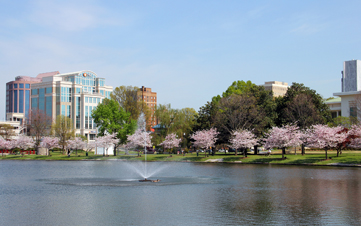
Profit and prosper with the best of Kiplinger's advice on investing, taxes, retirement, personal finance and much more. Delivered daily. Enter your email in the box and click Sign Me Up.
You are now subscribed
Your newsletter sign-up was successful
Want to add more newsletters?

Delivered daily
Kiplinger Today
Profit and prosper with the best of Kiplinger's advice on investing, taxes, retirement, personal finance and much more delivered daily. Smart money moves start here.

Sent five days a week
Kiplinger A Step Ahead
Get practical help to make better financial decisions in your everyday life, from spending to savings on top deals.

Delivered daily
Kiplinger Closing Bell
Get today's biggest financial and investing headlines delivered to your inbox every day the U.S. stock market is open.

Sent twice a week
Kiplinger Adviser Intel
Financial pros across the country share best practices and fresh tactics to preserve and grow your wealth.

Delivered weekly
Kiplinger Tax Tips
Trim your federal and state tax bills with practical tax-planning and tax-cutting strategies.

Sent twice a week
Kiplinger Retirement Tips
Your twice-a-week guide to planning and enjoying a financially secure and richly rewarding retirement

Sent bimonthly.
Kiplinger Adviser Angle
Insights for advisers, wealth managers and other financial professionals.

Sent twice a week
Kiplinger Investing Weekly
Your twice-a-week roundup of promising stocks, funds, companies and industries you should consider, ones you should avoid, and why.

Sent weekly for six weeks
Kiplinger Invest for Retirement
Your step-by-step six-part series on how to invest for retirement, from devising a successful strategy to exactly which investments to choose.
Seasoned professionals looking to get a fresh start may consider moving to a new city to help revive their careers. High-paying jobs and an affordable real estate market are key deciding factors for this group.
To identify the Best Cities for Mid-Career Professionals, Kiplinger teamed up with Kevin Stolarick, research director at the Martin Prosperity Institute, a think tank that studies economic prosperity. All of the cities on our list have reasonable living costs, strong employment growth and a population that scores high on measures of education and tech-savviness. For mid-career professionals, we also factored in homeownership affordability, commute times and income growth.
The cost-of-living index measures how expensive it is to live in a city; the national average score is 100. That means cities with a score below 100 have a lower-than-average cost of living. Nationwide, median household income is $43,024, and median income growth from 2006 to 2011 was 11.1%. The national unemployment rate is 8.2%.
Check out our picks, and share your thoughts in our reader comment box below.
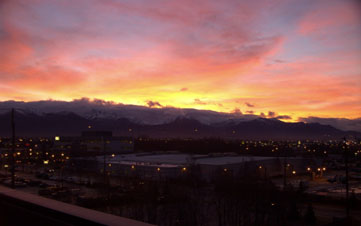
5. Fayetteville, Ark.
Population (metro area): 366,383
Unemployment rate: 5.7%
Cost-of-living index: 96.8
Median household income: $45,757
Income growth (2006-11): 14.1%
Nestled in the foothills of the Ozarks, Fayetteville is home to the University of Arkansas and is 30 miles from Wal-Mart's corporate headquarters. Both the university and feeder companies for the mega-retailer (Procter & Gamble, PepsiCo and Tyson Foods) offer jobs, and Wal-Mart's move toward sustainability has sparked the growth of green-industry start-ups.
The town is known for beautiful weather, with four distinct seasons. Nature lovers can backpack in the Ozarks, kayak on the Buffalo River or enjoy the city's parks and trails. In April through November, the farmer's market provides fresh produce and baked goods and the residents can take in live music and street performances. The Walton Arts Center features performances from Broadway shows to symphony concerts, as well as visual arts.
Homes are reasonably priced -- near the town center and the university, a three-bedroom costs between $200,000 and $300,000. Move west across Interstate 540 and you’ll find four-bedrooms near golf courses for closer to $175,000.
YOUR TAKE: Share your favorite photos from around town, or tell us why you love your city.
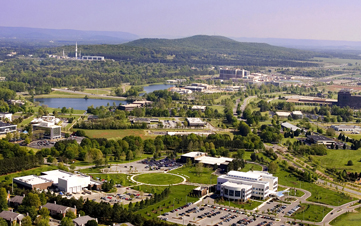
4. Anchorage, Alaska
Population (metro area): 380,821
Unemployment rate: 6.2%
Cost-of-living index: 130.8
Median household income: $69,317
Income growth (2006-11): 11.8%
Juneau may be the state capital, but Alaska's largest city houses the majority of the state's government jobs, including those at University of Alaska, Anchorage. In the private sector, the biggest employers are in health care. Military installations and a healthy tourist trade add jobs, too.
The Chugach Mountains are visible from most places downtown and call residents to the great outdoors. Anglers enjoy superb fishing, and bikers and hikers have ready access to nearly 450 miles of paved and unpaved trails to explore. But get daylight while you can -- in summertime, the sun shines more than 19 hours a day on average, but in the winter that drops to just 5 hours.
Just because Alaska is removed from the lower 48 doesn't mean that it lacks arts and culture. Residents can catch an opera, head to a theater performance or take in an improv show. Affordable housing costs -- $200,000 to $300,000 for three- and four-bedroom homes close to downtown -- and low taxes boost the city's appeal.
YOUR TAKE: Share your favorite photos from around town, or tell us why you love your city.
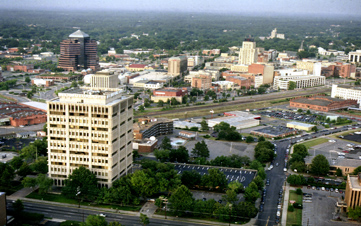
3. Huntsville, Ala.
Population (metro area): 417,593
Unemployment rate: 6.5%
Cost-of-living index: 93.7
Median household income: $53,123
Income growth (2006-11): 13.4%
Home to the Army's Redstone Arsenal, including the Marshall Space Center, Huntsville jet-propels careers in aerospace, defense, bioscience, high-tech manufacturing and computer technology. Huntsville residents, including the 25,000 employees who work at Cummings Research Park, typically shop, eat and hang out after hours at the Bridge Street Town Centre, which includes high-end shopping, restaurants and a popular bar called the Scene Lounge inside the movie theater.
For housing, many professionals head to the Village of Providence, a high-density development with condos, townhouses, rental apartments and cottages, all within walking distance of restaurants and shopping. A three-bedroom, three-bath bungalow-style cottage there is listed at $329,000.
This livable city also offers short commutes, a 112-acre botanical garden, a renowned orchestra and the Huntsville Museum of Art. Not only does the museum offer first-class art (mostly American), it also encourages hard-working Huntsvillians to relax with weekly wine-and-yoga classes called "Align & Wine."
YOUR TAKE: Share your favorite photos from around town, or tell us why you love your city.
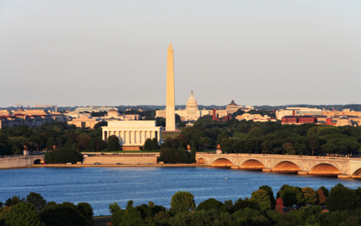
2. Durham, N.C.
Population (metro area): 504,375
Unemployment rate: 7.4%
Cost-of-living index: 103.4
Median household income: $50,106
Income growth (2006-11): 15.9%
Durham is a hotbed for tech start-ups. It's home to Duke University (part of the Research Triangle, which includes the nearby University of North Carolina at Chapel Hill and North Carolina State University). And it's next to Research Triangle Park, a center for companies specializing in biological, environmental and computer technology. The Durham area also hosts big employers, such as IBM and GlaxoSmithKline.
The cost of living is slightly above the national average, but the median home price of $150,000 is slightly below. Area home prices have been relatively stable since the housing bust, a tribute to steady employment and a stable population.
In the historic downtown, tobacco warehouses anchor Brightleaf Square, a mix of eateries, shops and offices. Nearby, you can sample a sophisticated take on Southern fare at Scratch Bakery; try the sesame–sweet potato soup and spicy turnip pickle.
YOUR TAKE: Share your favorite photos from around town, or tell us why you love your city.

1. Washington, D.C.
Population (metro area): 5,582,170
Unemployment rate: 5.3%
Cost-of-living index: 136.3
Median household income: $84,424
Income growth (2006-11): 15.8%
The nation's capital boasts diversity -- from job sectors to arts and culture -- which means it's easy to find your niche. Don't peg greater Washington as just a government hub; D.C.'s biggest growth area is professional services, such as consulting companies and defense contractors. Biotech rules in the Maryland suburbs, and in the area stretching from Baltimore to the District, cyber-security jobs are growing.
While many come for the jobs, they stay for the quality of life. Check out the free Smithsonian museums, concerts hosted by embassies or the pro sports games. Neighborhoods range from leafy suburbs to trendy downtown areas with an eclectic mix of eateries, shopping and bars -- but housing costs are high downtown and in the close-in suburbs. Prices for a two-bedroom/two-bath condo in happening neighborhoods (D.C.'s Logan Circle and Arlington's Clarendon, for example) start at about $600,000. Move off the Metro line and for $500,000 to $600,000 you can find a three-bedroom single-family home.
YOUR TAKE: Share your favorite photos from around town, or tell us why you love your city.

Profit and prosper with the best of Kiplinger's advice on investing, taxes, retirement, personal finance and much more. Delivered daily. Enter your email in the box and click Sign Me Up.
-
 Here’s How to Stream the Super Bowl for Less
Here’s How to Stream the Super Bowl for LessWe'll show you the least expensive ways to stream football's biggest event.
-
 The Cost of Leaving Your Money in a Low-Rate Account
The Cost of Leaving Your Money in a Low-Rate AccountWhy parking your cash in low-yield accounts could be costing you, and smarter alternatives that preserve liquidity while boosting returns.
-
 I want to sell our beach house to retire now, but my wife wants to keep it.
I want to sell our beach house to retire now, but my wife wants to keep it.I want to sell the $610K vacation home and retire now, but my wife envisions a beach retirement in 8 years. We asked financial advisers to weigh in.
-
 What to Do With Your Tax Refund: 6 Ways to Bring Growth
What to Do With Your Tax Refund: 6 Ways to Bring GrowthUse your 2024 tax refund to boost short-term or long-term financial goals by putting it in one of these six places.
-
 What Does Medicare Not Cover? Eight Things You Should Know
What Does Medicare Not Cover? Eight Things You Should KnowMedicare Part A and Part B leave gaps in your healthcare coverage. But Medicare Advantage has problems, too.
-
 15 Reasons You'll Regret an RV in Retirement
15 Reasons You'll Regret an RV in RetirementMaking Your Money Last Here's why you might regret an RV in retirement. RV-savvy retirees talk about the downsides of spending retirement in a motorhome, travel trailer, fifth wheel, or other recreational vehicle.
-
 The Six Best Places to Retire in New England
The Six Best Places to Retire in New Englandplaces to live Thinking about a move to New England for retirement? Here are the best places to land for quality of life, affordability and other criteria.
-
 The 10 Cheapest Countries to Visit
The 10 Cheapest Countries to VisitWe find the 10 cheapest countries to visit around the world. Forget inflation and set your sights on your next vacation.
-
 15 Ways to Prepare Your Home for Winter
15 Ways to Prepare Your Home for Winterhome There are many ways to prepare your home for winter, which will help keep you safe and warm and save on housing and utility costs.
-
 Six Steps to Get Lower Car Insurance Rates
Six Steps to Get Lower Car Insurance Ratesinsurance Shopping around for auto insurance may not be your idea of fun, but comparing prices for a new policy every few years — or even more often — can pay off big.
-
 How to Increase Credit Scores — Fast
How to Increase Credit Scores — FastHow to increase credit scores quickly, starting with paying down your credit card debt.
